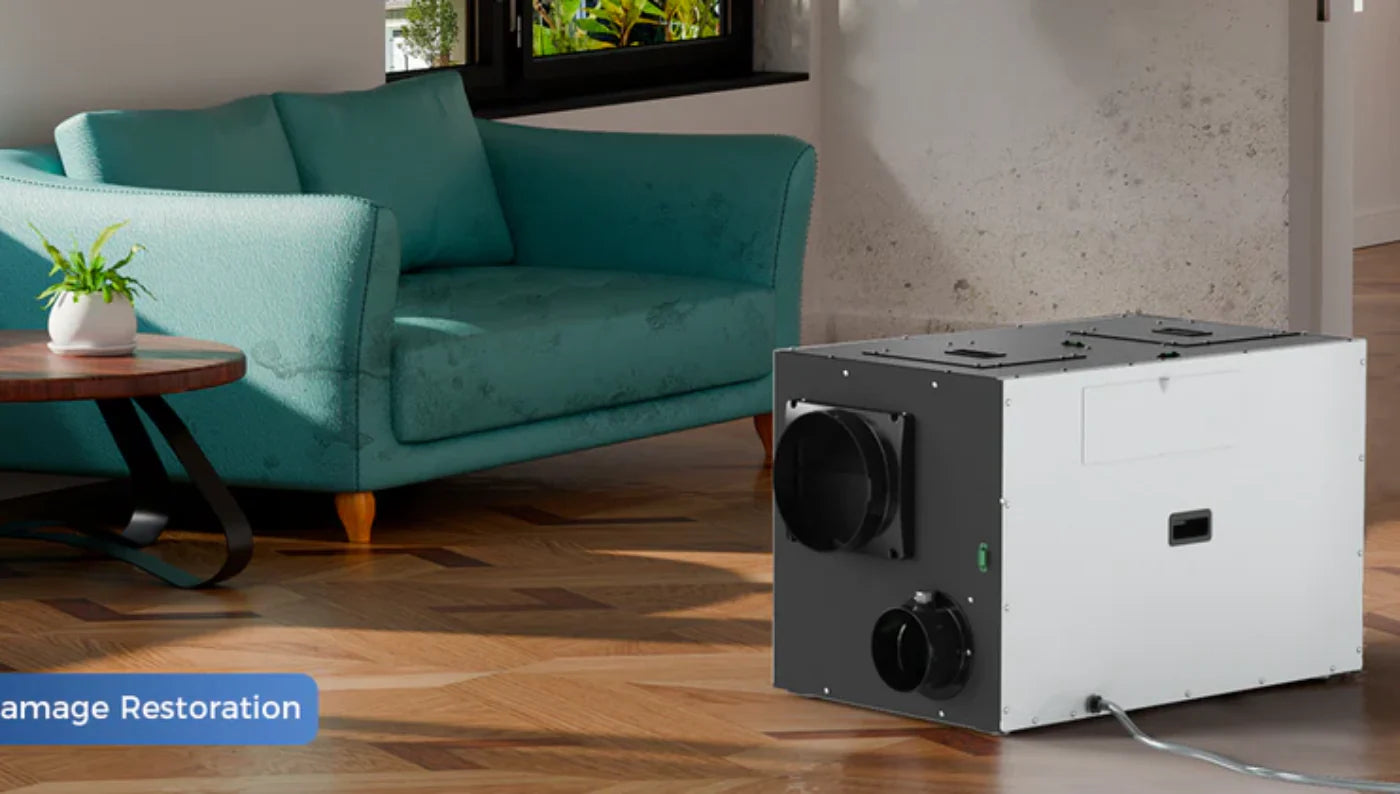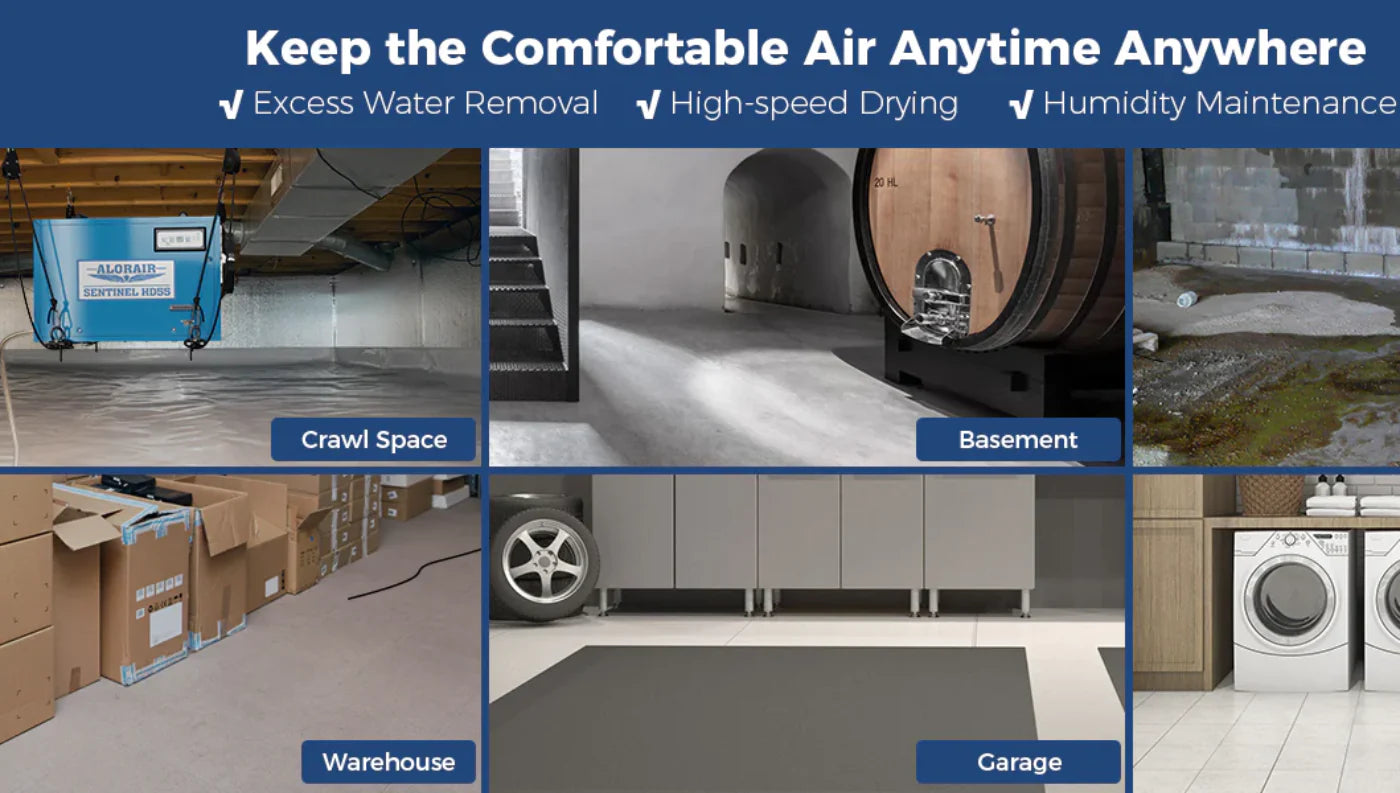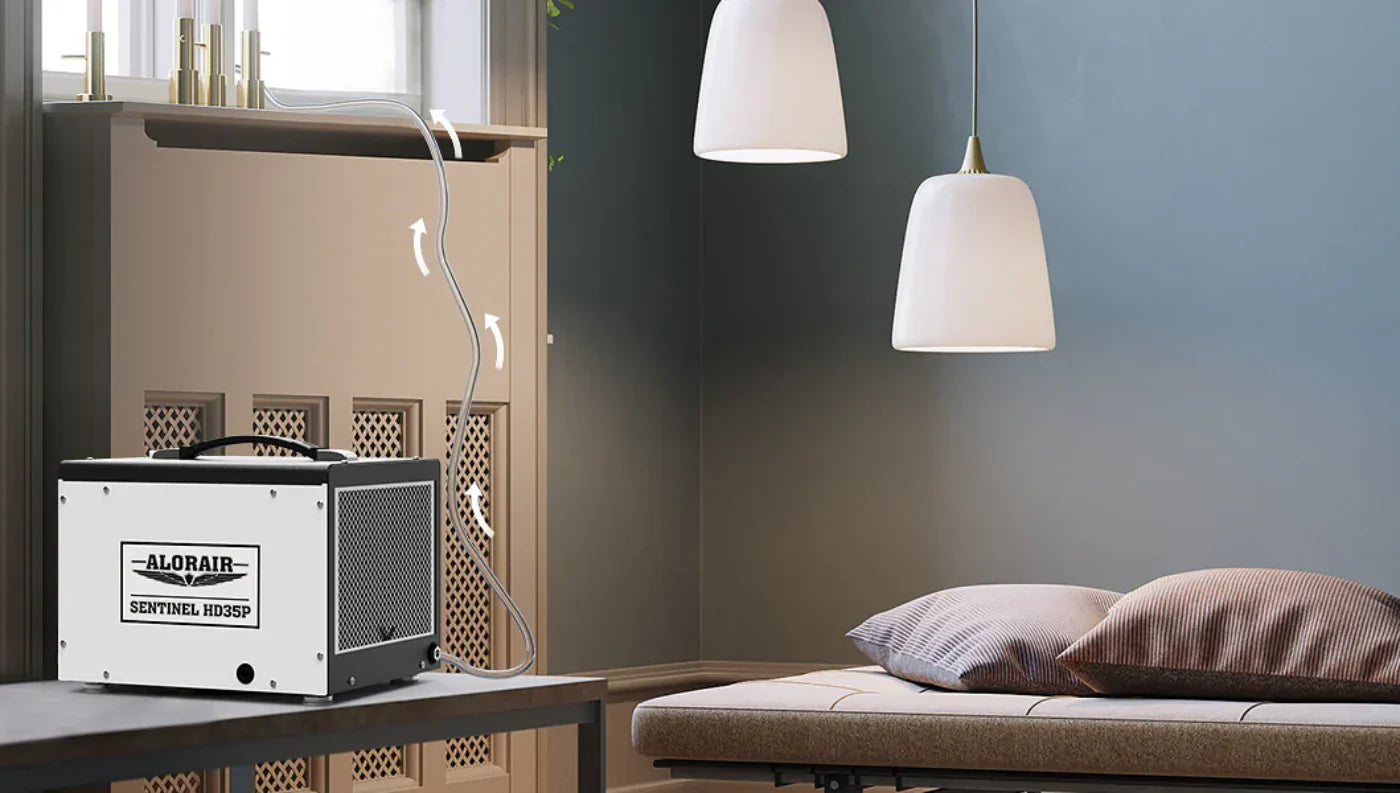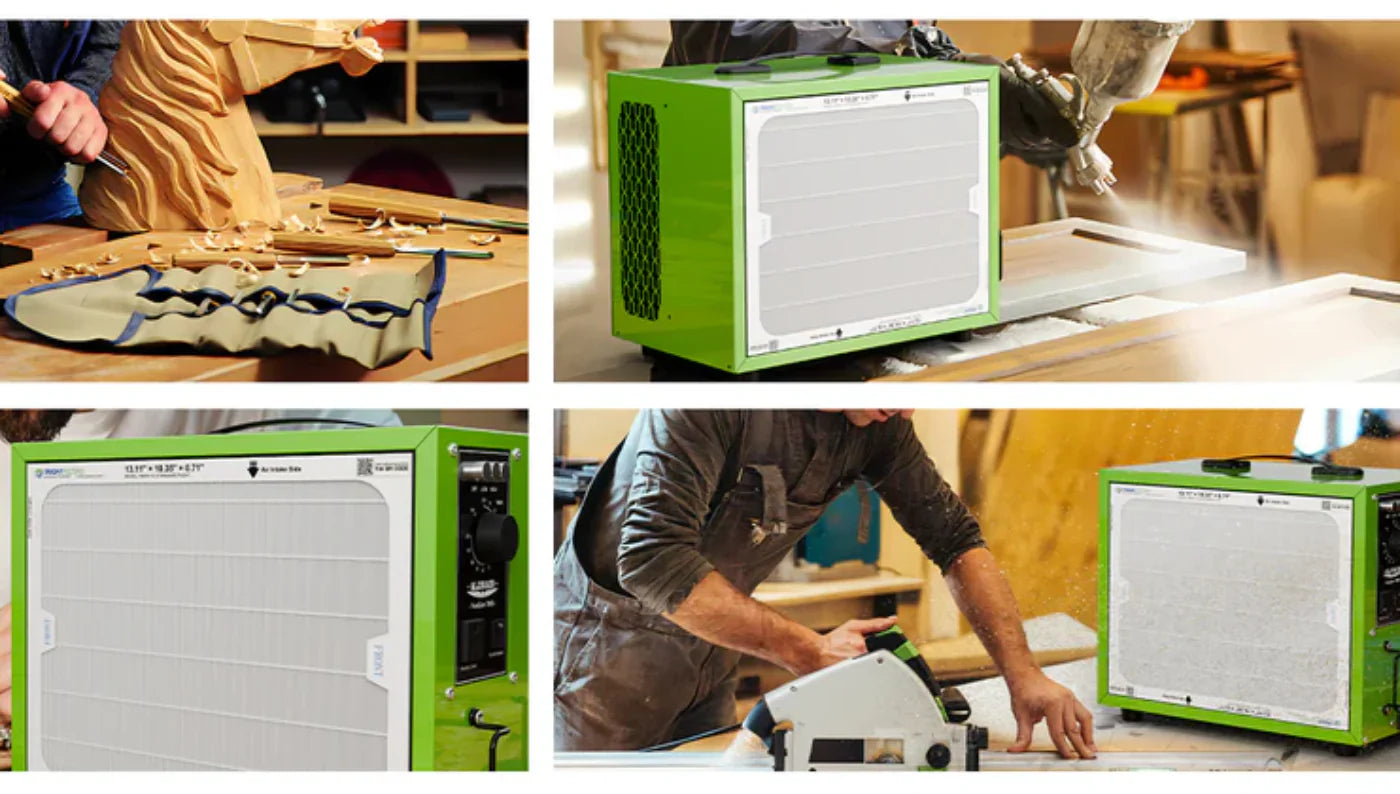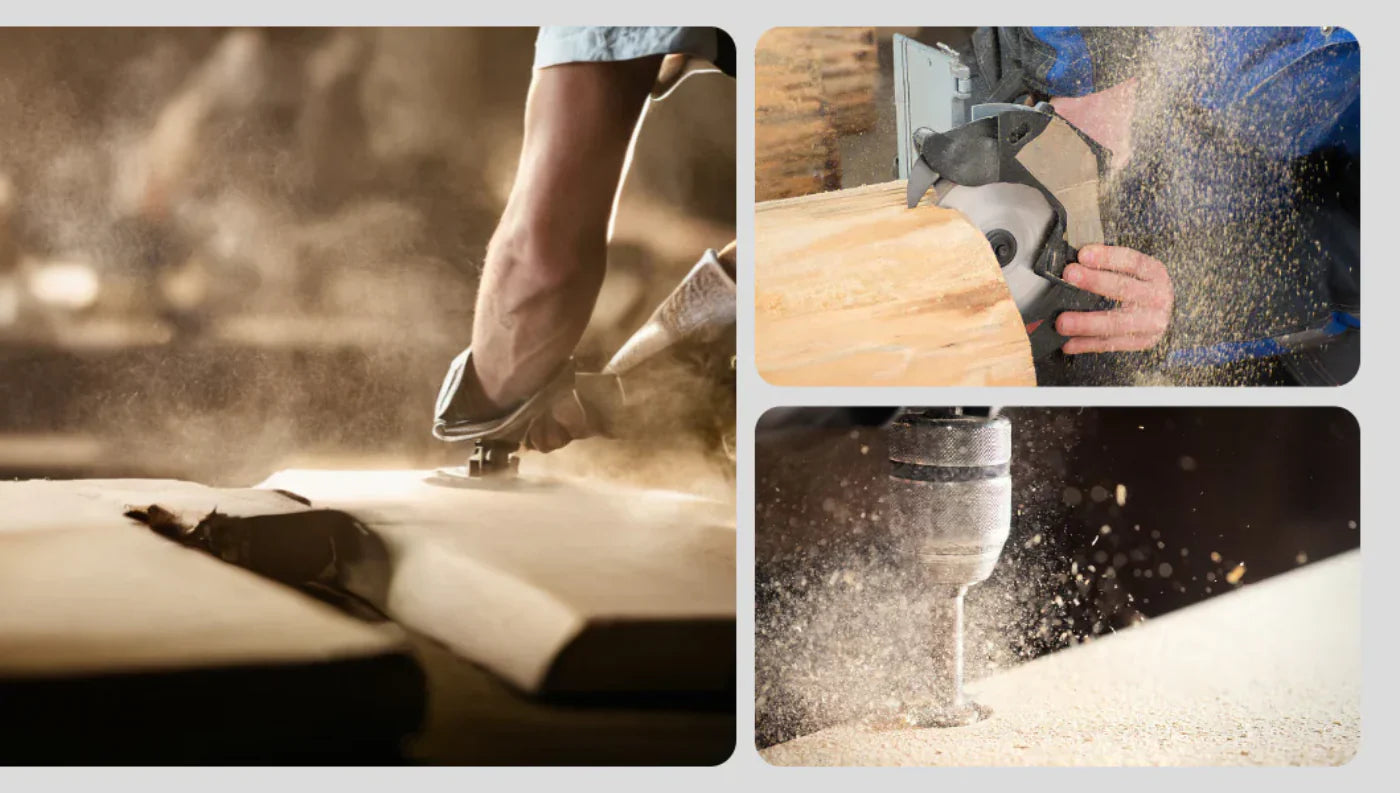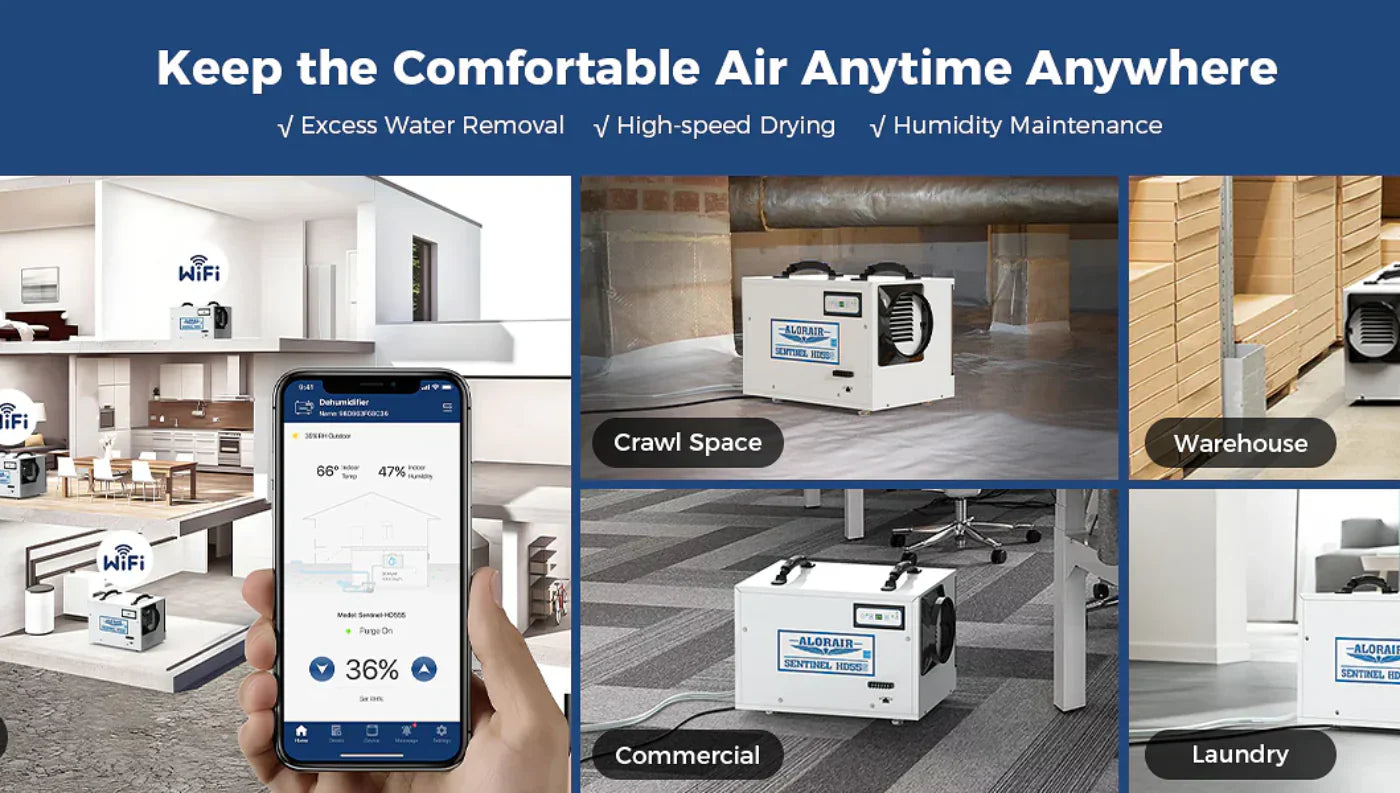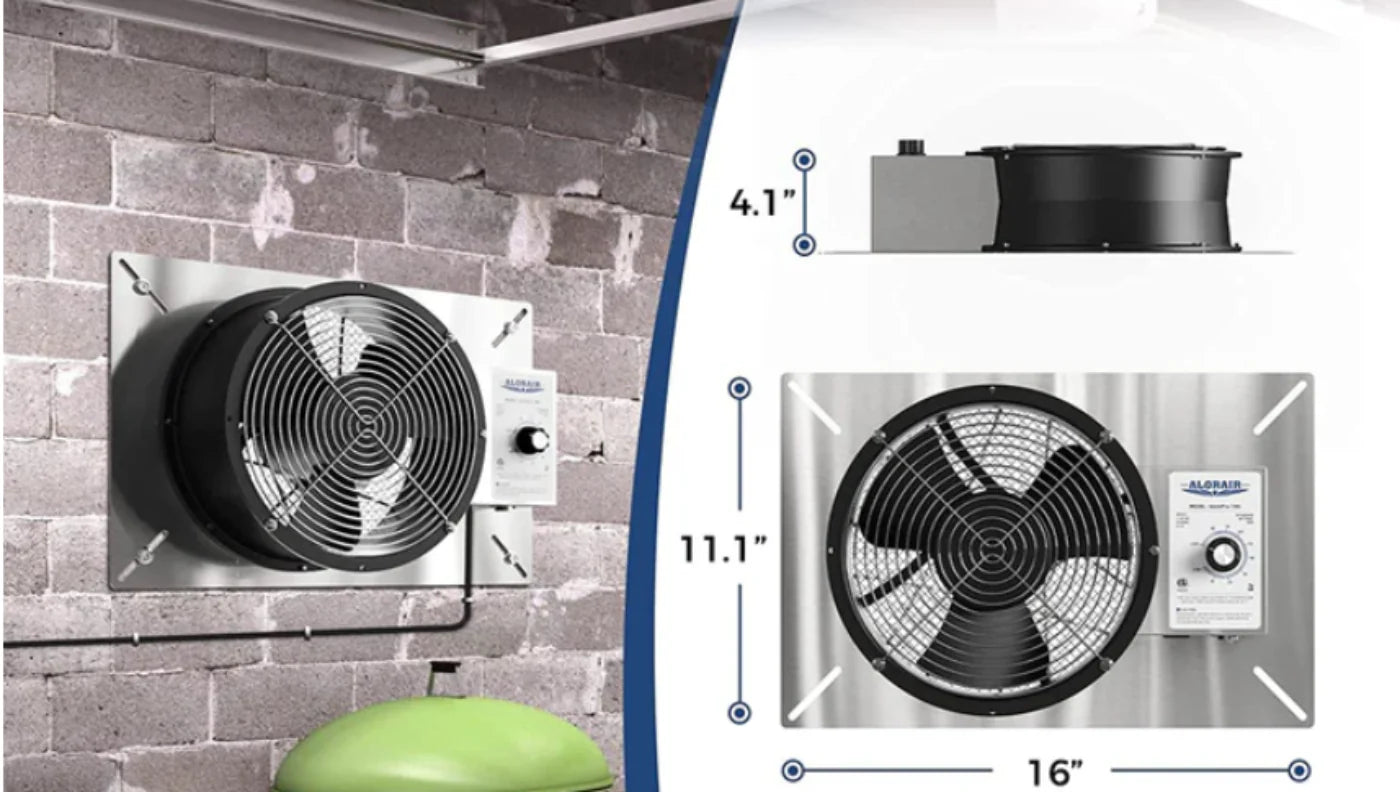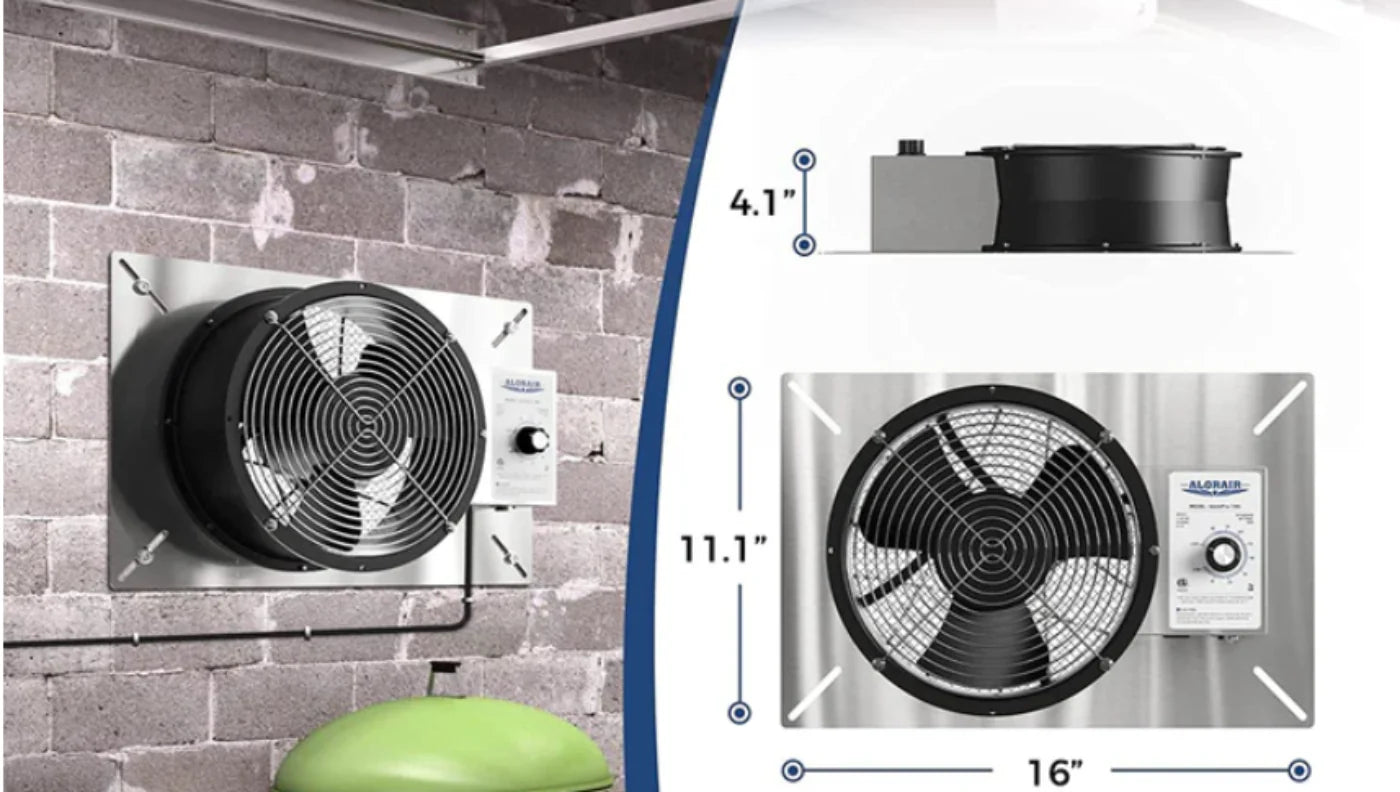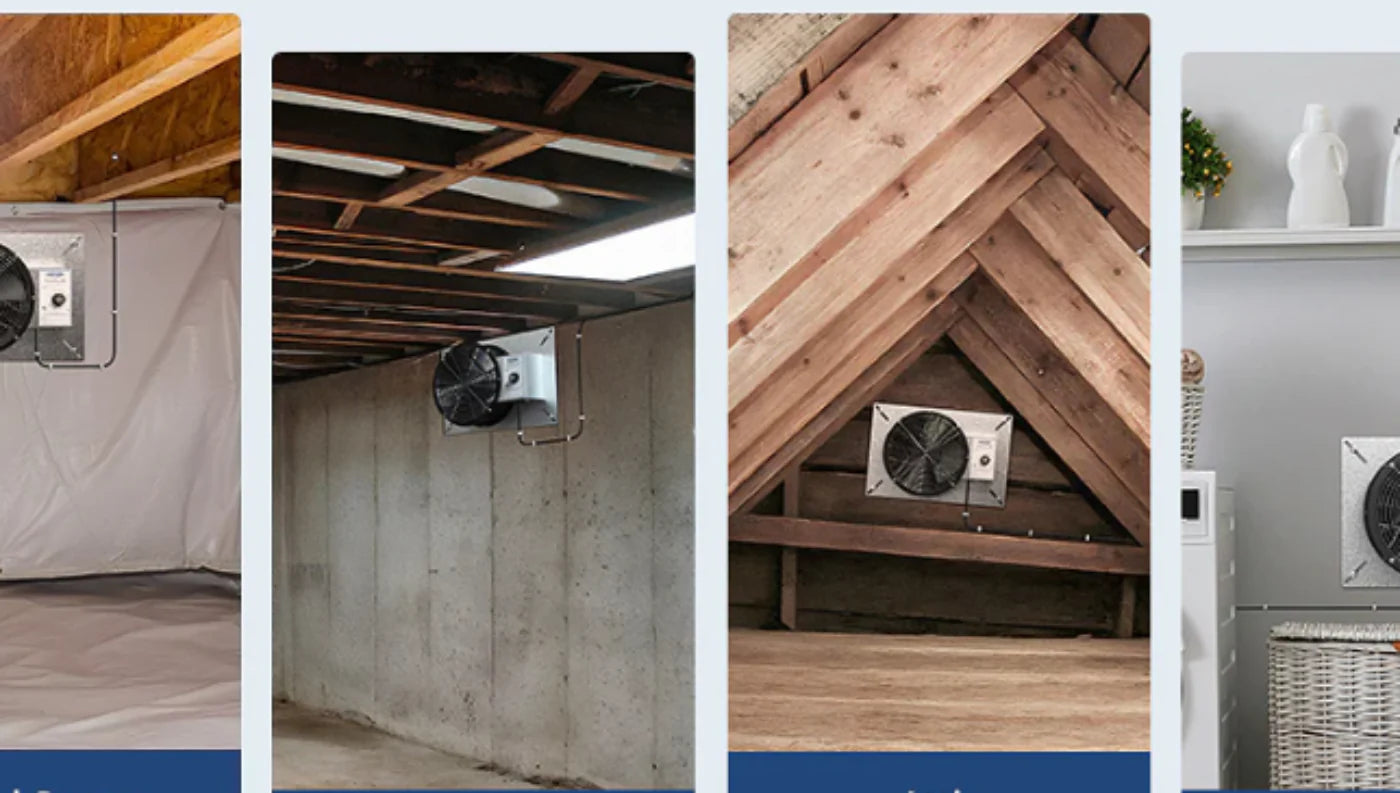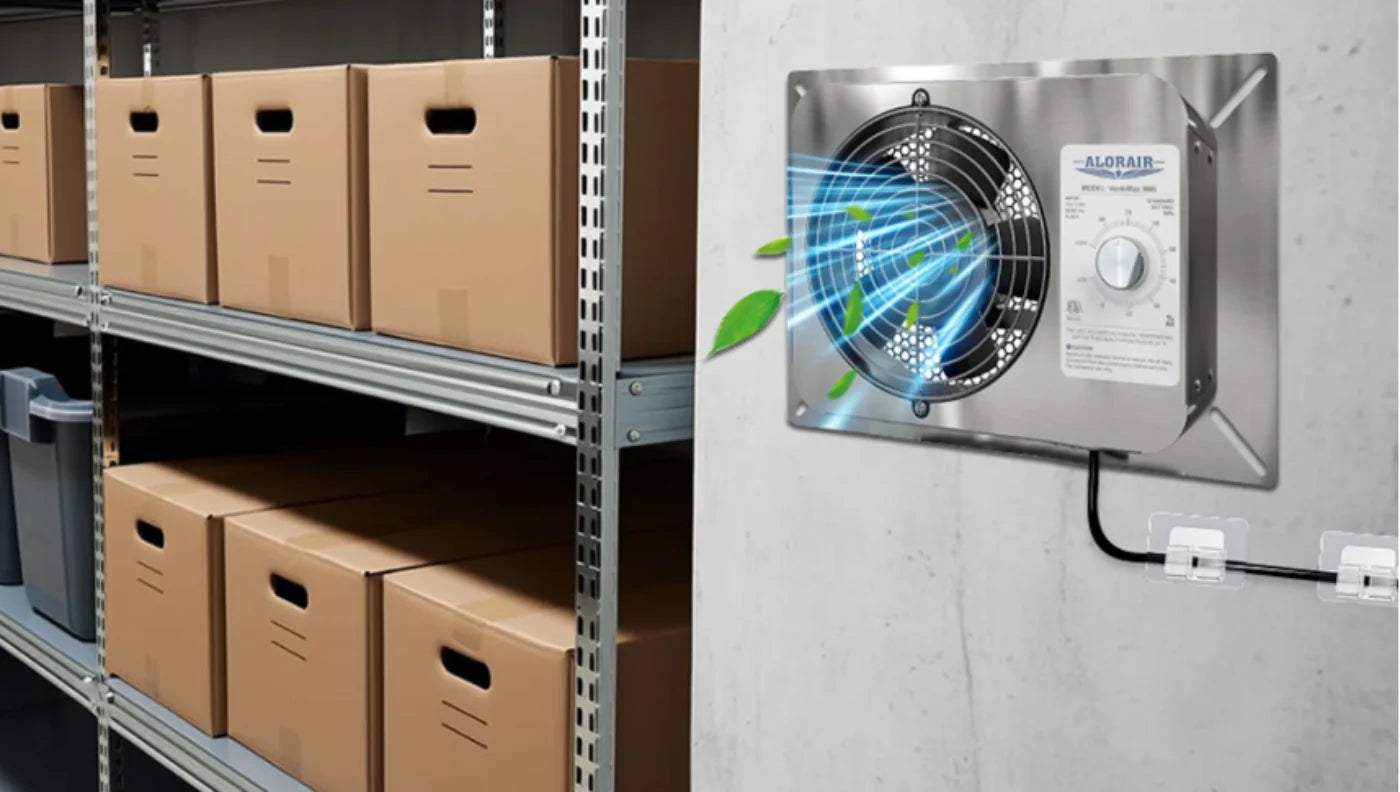As unpleasant as it is, mold is virtually everywhere. It's in the air we breathe, on surfaces we touch, and even in some of the foods we eat. From the damp corners of your bathroom to the forgotten leftovers in your fridge, mold spores are constantly looking for a place to settle and grow. But while encountering mold is almost inevitable, accidentally ingesting a significant amount is relatively rare.
Breathing or consuming mold causes side effects for some people, while others don’t see any symptoms. So, what happens if you do happen to eat mold? Should you panic? Is a trip to the doctor necessary?
In this article, we'll break down the potential dangers of consuming mold, identify who’s the most vulnerable, and most importantly, equip you with the knowledge and tools to prevent mold problems from taking hold in your home and environment.
What Causes Mold in Your Home and Food?
Generally, mold can grow anywhere in your home given the right conditions. Mold is a common issue that many homeowners have to deal with, particularly in areas where moisture levels tend to be higher. Molds can produce spores that spread easily, and their growth is encouraged by warm and humid conditions. Outdoors, wet leaves, damp wood, wading pools, and puddles are all sources of mold.
Where humidity levels are high, it's certain that there’s some mold growing around. When inside, you can spot mold on the bathroom ceiling, kitchen, window, carpet, and several more places in the home. Signs of mold include discoloration and a musty odor.
The causes of mold in your home are:
Moisture Content: Excess moisture sets the stage for mold to thrive. Think of moisture as a mold VIP invitation. Leaky pipes, high humidity, and condensation provide the perfect environment for the growth of these unwanted substances. You can find mold in the bathroom, damp basement, and windows when condensation occurs. The bathroom, with its constant moisture, is a prime target for issues like mold on bathroom ceilings.
Organic Matter: Mold needs to feed just like humans. But instead of three-course meals, mold feasts on wood, paper, drywall, and even soap residue. Kitchens and bathrooms, with their abundance of organic material, are particularly vulnerable to mold in bathroom areas.
Temperature: Warm temperatures, especially in steamy bathrooms, create the perfect breeding ground for mold spores, which can exacerbate existing mold in bathroom issues. Studies show that most molds prefer temperatures between 77°F and 86°F (25°C and 30°C). Temperature fluctuations can also create condensation, providing the perfect moisture for mold spores to germinate.
Poor Ventilation: Proper ventilation in your home prevents moisture buildup. Without proper ventilation, moisture sticks around, making a place for mold to grow. That's why ensuring adequate ventilation in areas prone to moisture, like bathrooms and kitchens, is crucial in keeping mold at bay.
How does Mold grow on food:
Now, you might be wondering, "How does this affect the food I safe to eat?" The answer lies in the microscopic spores that mold releases. Beyond specific factors like improper storage, and expired and damaged food, airborne spores are large contributors to mold growth on food.
These spores are constantly floating in the air, ready to land on any suitable surface. Airborne mold spores from a moldy bathroom ceiling or any part of the home can easily reach your kitchen, potentially contaminating food.
When they settle on food with sufficient moisture and organic matter, they can quickly colonize, leading to visible mold growth and potential contamination. To combat this, an air scrubber for mold can help remove these spores from the air.
What happens if you eat mold?
While the thought of consuming mold might trigger an instinctive "ick" factor, the reality is often less alarming than you might expect. According to Dr. Robert Glatter, an emergency physician at Lenox Hill Hospital in New York City, "For the vast majority of people with healthy immune systems, accidentally ingesting a small amount of mold is unlikely to cause significant harm."
This is because our bodies have robust defense mechanisms. The digestive system is equipped to handle various substances, including small amounts of mold. In most cases, the mold is broken down and eliminated without causing any noticeable issues. However, the type of mold consumed can affect the severity of symptoms.
However, consuming larger quantities of mold or having a compromised immune system can lead to different outcomes. Here's a closer look:
Potential Symptoms:
Mild Reactions (Common): For most healthy individuals, a small amount of mold might lead to temporary discomfort, such as nausea, indigestion, or diarrhea. These symptoms typically resolve on their own.
Allergic Reactions: People with mold allergies can experience more severe reactions, including respiratory distress, skin rashes, and even asthma attacks. Signs of mold exposure include sneezing, coughing, and eye irritation.
Mold Infections: In individuals with weakened immune systems, mold can sometimes lead to infections, especially in the lungs or sinuses.
Vulnerable Populations:
Certain groups are more susceptible to adverse effects from mold exposure:
Individuals with Allergies or Respiratory Conditions: Allergies, asthma, and COPD can exacerbate reactions to mold.
Immunocompromised Individuals: Those with weakened immune systems, such as transplant recipients or individuals undergoing chemotherapy, are more prone to infections.
Children: Young children may be more sensitive to mold due to their developing immune systems. One 2011 study and another study have linked early mold exposure to potential cognitive and respiratory issues. It was found that children who were exposed to mold early had lower cognitive scores than their peers and higher chances of acquiring asthma later on in life.
When to Seek Medical Attention:
If you experience persistent or severe symptoms after eating mold, especially respiratory distress, it's crucial to seek medical attention promptly. Additionally, if you have underlying health conditions or concerns about your immune system, consulting a doctor is always a wise choice.
Additional Tips:
Prevention is Key. The best way to avoid the unpleasantness of eating mold is to prevent its growth in the first place. If food looks or smells moldy, it's best to discard it to avoid any potential risks. In the next section, we explore practical prevention strategies that can prevent and eliminate mold in your home for good.
Check our store today for our trusted air solutions and grab our Air scrubber for HVAC to defeat mold in your home.
How to Prevent Mold Growth in Your Home (and Protect Your Food)
Here are a few tips on how to prevent and remove mold from your home and keep your food safety:
Control Humidity: Keep humidity levels in your home below 50%, ideally between 30% and 50%. You can monitor humidity using a hygrometer.
During wet seasons, consider running a dehumidifier. Alorair's dehumidifiers are designed to efficiently remove excess moisture from the air, creating a less inviting environment for mold.
Ventilation: Proper ventilation helps prevent moisture buildup. Use exhaust fans in bathrooms and kitchens, especially when showering or cooking. Open windows when the weather permits to allow fresh air to circulate. If you have a damp basement or crawl space, consider installing an air ventilation system or an air mover to improve airflow.
Address Leaks and Spills Promptly: Fix any leaks in your roof, plumbing, or windows as soon as possible. Even a small leak can create enough moisture for mold to flourish. Wipe up spills immediately and clean bathrooms and kitchens thoroughly, addressing any mold in bathroom areas.
Keep Things Clean and Dry:
Regularly clean bathrooms and kitchens, paying attention to areas prone to moisture buildup (e.g., shower stalls, around sinks). Dry wet items (towels, clothes) promptly. Don't leave damp items lying around the house.
Purify the Air:
HEPA air purifiers, like the air scrubber HEPA, capture and remove mold spores from the air, including those that may have originated from mold on bathroom ceilings. A whole-house solution, like the air scrubber for HVAC, can ensure clean air in every room.
Store Food Properly:
Store food in airtight containers in cool, dry places. Avoid leaving perishable food out at room temperature for extended periods. Check expiration dates regularly and discard any food that shows signs of mold.
Additional Tips:
Beyond an air scrubber for mold, there are a few more measures you can set up in your home.
Consider using mold-resistant paint in bathrooms and other high-humidity areas. Don't use carpets for bathrooms or basements. Carpets can trap moisture and promote mold growth.
If you suspect hidden mold growth (e.g., behind walls), consider hiring a professional mold remediation specialist.
By implementing these preventive measures, you can create a home environment that is hostile to mold growth, protecting your health and food safety. Remember, prevention is the most effective way to combat mold and ensure a clean, healthy living space.
Key takeaways
Mold's impact on health varies. Mold can trigger allergic reactions and respiratory issues in some individuals, while others may experience no symptoms. Children and those with weakened immune systems are particularly vulnerable. If you frequently experience any of the above symptoms, consult a doctor.
The most effective way to combat mold is to prevent it from taking hold. If you suspect that your home has mold, addressing moisture issues, improving ventilation, and maintaining cleanliness are crucial steps.
The solutions here at Alorair like an air scrubber for mold are essential for a Mold-Free Home. Alorair's dehumidifiers and air scrubbers offer a proactive approach to mold prevention. Invest in solutions like Alorair's dehumidifiers and air scrubbers for HVAC systems to control humidity, purify the air, and safeguard your well-being.
Explore Alorair's range of air scrubbers and air solutions and discover special offers designed to protect your family's well-being. Take action today and enjoy a special discount on our AlorAir HEPA Air Scrubber 550.




